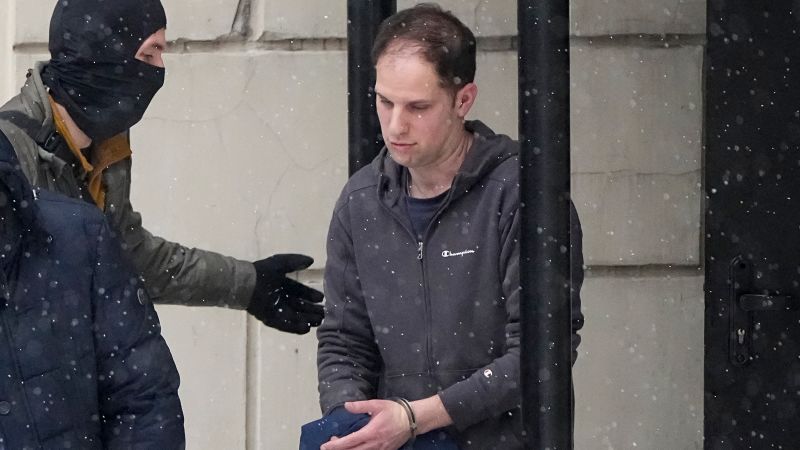Six journalists working for independent media outlets in Russia were arrested in a span of just a few hours on the eve of the anniversary of American reporter Evan Gershkovich’s detention in Yekaterinburg. Among these journalists is Antonina Favorskaya, who covered the late Russian opposition leader Alexey Navalny. Favorskaya, who works for the independent Russian media outlet SOTA Vision, is accused of “extremist activities” due to her coverage of Navalny and his work. Gershkovich marked one year in Russian detention on Friday, after being charged with espionage following his arrest. The Russian government has not provided any evidence to support these accusations.
Favorskaya is the journalist who filmed Navalny’s last video before his death, showing him laughing and joking during a court hearing via video link from a penal colony where he was serving his sentence. The Investigative Committee in Russia has requested Favorskaya’s arrest for “participating in an extremist organization.” Over the last two years, Favorskaya covered all of Navalny’s court hearings, visited the penal colonies where he was serving his sentence, and followed developments at the cemetery where Navalny was buried.
The six journalists, including Favorskaya, were arrested on Wednesday and Thursday, according to Reporters Without Borders (RSF). RSF condemned the arbitrary arrests and violence against these journalists, stating that the authorities are escalating their persecution of the last independent journalists and media in Russia. Favorskaya was arrested while being released after spending 10 days in detention in Moscow for “disobeying the police.” She was detained along with two other journalists, Alexandra Astakhova and Anastasia Musayeva, who are now involved in the case as witnesses.
The Russian government’s crackdown on independent journalists has raised concerns about press freedom in the country. Favorskaya’s arrest and the arrests of the other journalists are seen as part of a broader pattern of targeting those who report on government opposition figures like Navalny. The charges of “extremist activities” and “espionage” against journalists are considered to be without merit and are perceived as attempts to silence dissenting voices in the media.
The arrest of these journalists has drawn international condemnation, with organizations like RSF speaking out against the authorities’ actions. The lack of transparency and evidence in the accusations against the journalists has raised questions about the fairness of their arrests. The Russian government’s crackdown on independent media outlets is seen as a threat to freedom of speech and press freedom in the country, as journalists are increasingly being targeted for their reporting.
Despite the challenges and risks faced by independent journalists in Russia, many continue to report on important issues and provide a platform for voices that are often silenced. The arrests of Favorskaya and her colleagues highlight the ongoing struggle for press freedom and the need for greater protection of journalists in Russia. International pressure and advocacy are crucial in addressing the crackdown on independent media and ensuring that journalists can work without fear of reprisal for their reporting.


